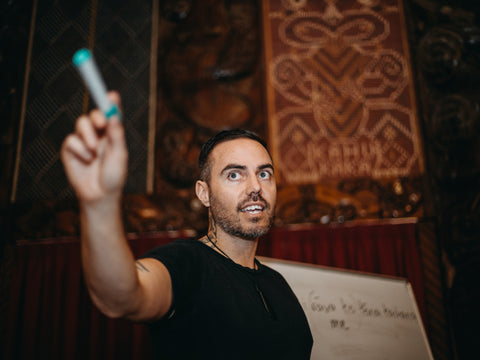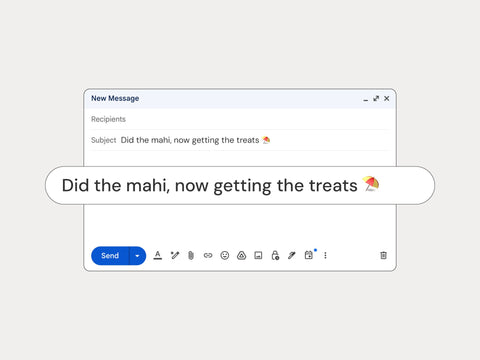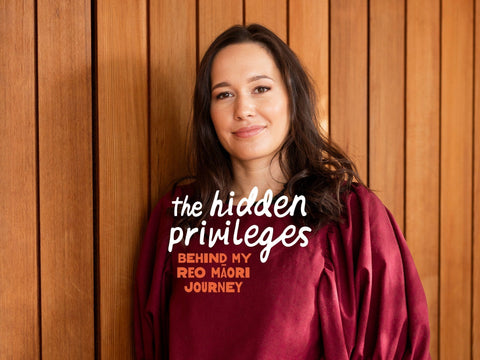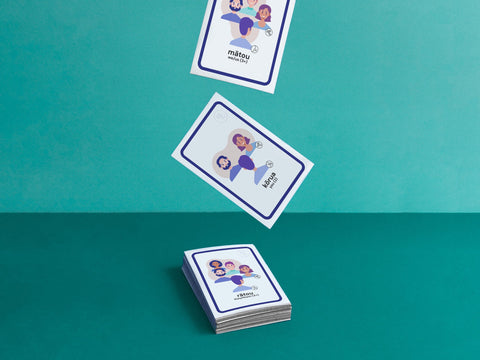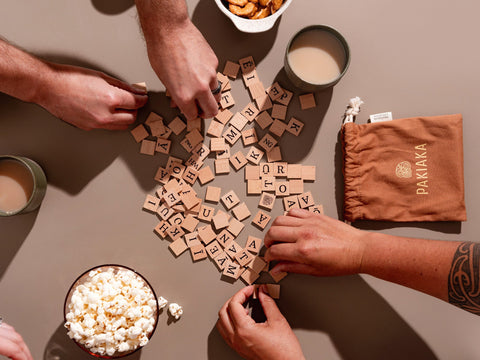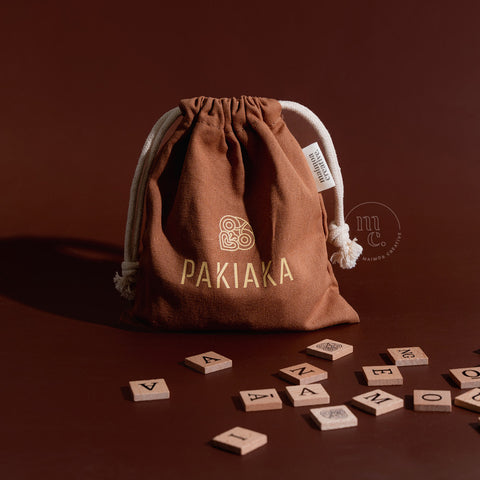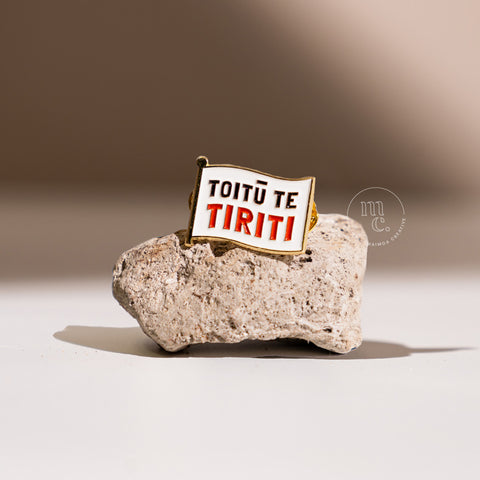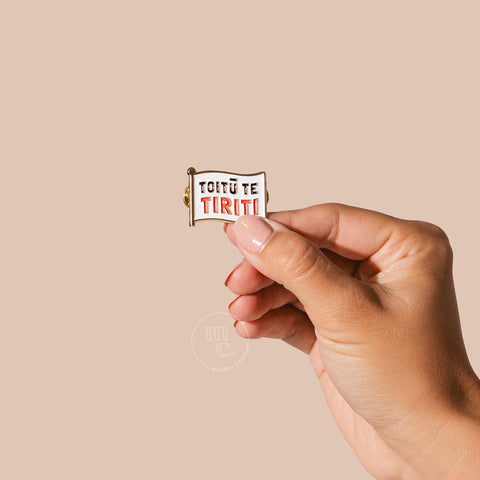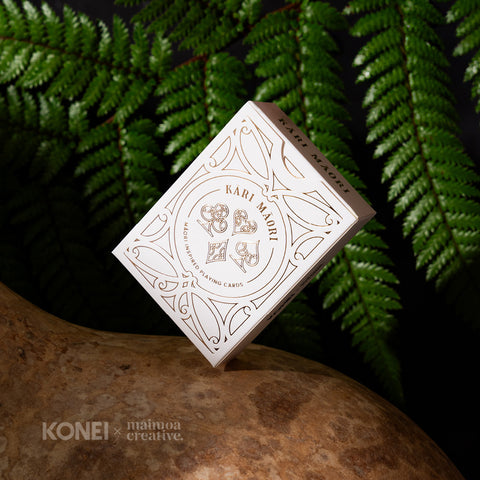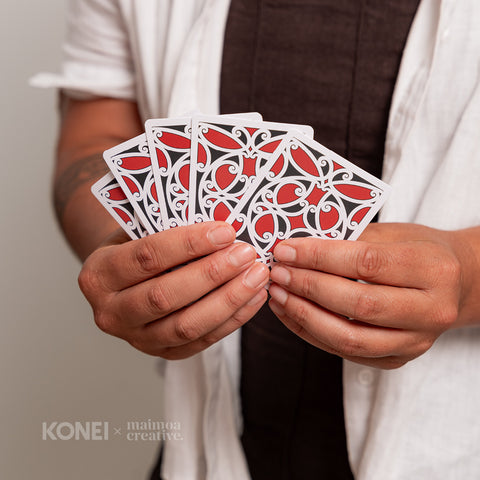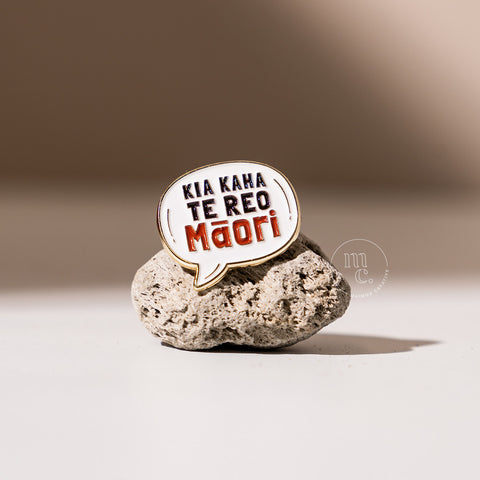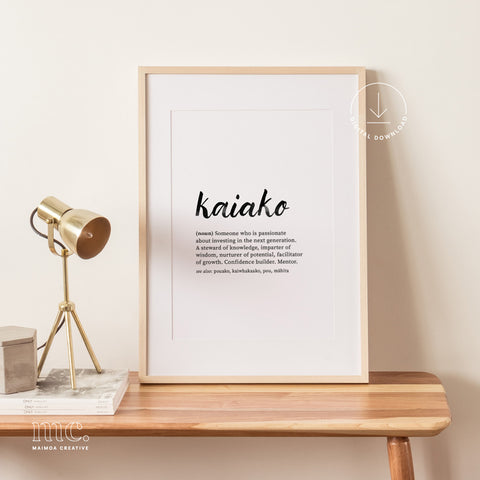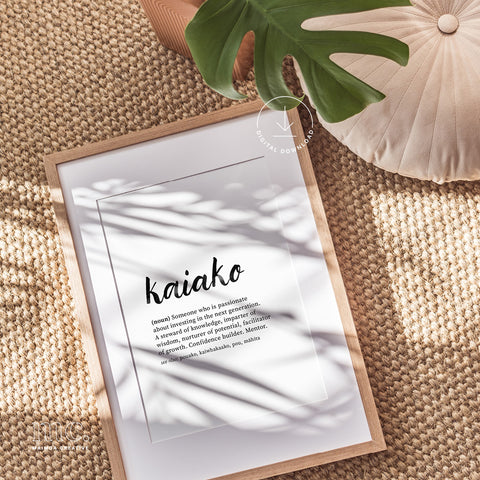The revitalisation of te reo Māori in Aotearoa is a testament to the resilience of a culture and a language that refuses to be silenced. As more and more people—Māori and non-Māori alike — start on their journey to learn this beautiful language, the role of fluent speakers and educators becomes increasingly critical. Yet, their role extends beyond instruction. It's about cultivating a supportive environment and discerning the constructive from the discouraging in correction methods, ensuring that the approach fosters confidence, growth, and a deep appreciation for te reo Māori.
Challenges in Te Reo Māori Learning
In a poll conducted in March 2024 by Maimoa Creative, with a turnout of over 800 participants, we explored the barriers hindering people from embracing te reo Māori. We asked the question: "What has prevented you from learning te reo Māori?"
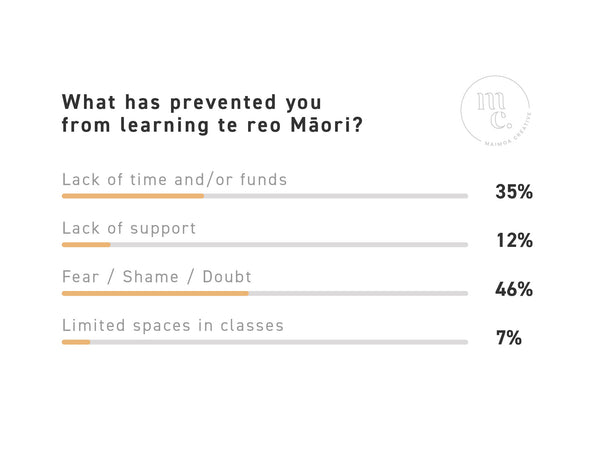
The results, though not entirely unexpected, revealed a poignant narrative. A staggering 46% of respondents acknowledged that feelings of shame, doubt, or fear constituted the primary obstacles. Another significant portion, 35%, was due to constraints related to time and/or finances. Additionally, 12% pointed to a lack of support, while 7% identified limited availability of class spaces as a barrier. Many respondents expressed feelings of intimidation and fear of making mistakes in front of others.
Some recounted profoundly negative encounters during their learning journey, often stemming from discouragement, humiliation, belittlement, and dismissal within their own community. More often than not, these negative experiences were perpetuated by fellow Māori against their own, which led to a decline in their confidence and willingness to continue practising. Below are only a few responses shared by followers:
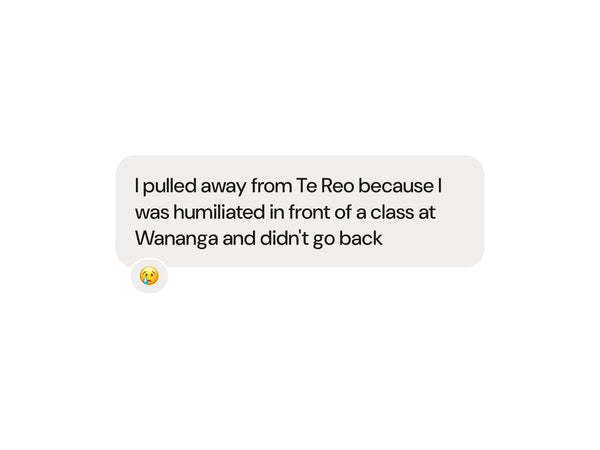
"I pulled away from Te Reo because I was humiliated in front of a class at Wananga and didn't go back"
"As Māori, being judged by other Māori... some have told me I'm not Māori because I didn't grow up on a marae or because I can't speak the language."
"My own people growling me and telling me no that is wrong all the time. I just can’t seem to get it right."
"Whakama. I’ve been laughed at for my pronunciation many times. I need to get over it."
These insights shed light on the emotional and psychological barriers that can impede language acquisition. The poll also underscores the importance of community support and the need for a collective effort to uplift and encourage learners at every stage of their journey.
Fostering a Positive Learning Environment
Creating a positive learning environment is essential for learners to thrive, where the focus is on progress, not perfection. It's a space that celebrates small victories and views mistakes as natural stepping stones in the learning process. Educators play a key role in this by setting the tone of the classroom, encouraging a culture of patience and mutual respect among learners. Remember, every fluent speaker was once a beginner, making mistakes and learning from them. The fear of being publicly shamed for errors can deter potential learners from even attempting to speak te reo Māori. When you interact with a learner of te reo Māori, you're either an enabler or an obstacle to the revitalisation of te reo rangatira.
The Art of Correction
Ensuring that te reo Māori is taught to a high standard of excellence and proficiency is absolutely what we should strive for, however, there are constructive or destructive ways to correct learners. People who humiliate, shut down, belittle, or discourage learners of te reo Māori for making mistakes are detrimental to the revitalisation of te reo rangarira. We must approach correction from a ngākau akiaki (place of encouragement), and learners should walk away from the experience feeling encouraged and empowered to continue on their journey, with a desire to honour the language to the best of their best ability. Corrections should be made with the intention of sharing knowledge, not asserting dominance.
Read the Room
Before correcting someone, it's essential to read the room and assess the context. Are you in a formal learning environment or a casual conversation? The setting can significantly influence how your feedback is perceived and received. Consider whether your correction will contribute to the conversation or if it might be better addressed privately later on. Public corrections can sometimes lead to humiliation and a reluctance to continue practicing. Instead, taking a moment to speak privately with a learner allows for a more personalised and considerate approach. This method respects the learner's feelings and provides a safe space for them to ask questions and seek clarification without the pressure of an audience.*
*Correcting in front of a whole class can be beneficial/appropriate if the educator has created a safe learning environment.
Empowerment through Knowledge and Understanding
Empowerment in the context of te reo Māori learning is about equipping learners with not just language skills but also with a deep understanding and appreciation of the culture. When learners grasp the whakapapa (genealogy) and tikanga (customs) that are embedded in the language, their connection to the learning process becomes more profound and personal. When you emphasise the importance of cultural context, you provide learners with a more holistic learning experience. This approach helps to transform learners from mere students of a language to ambassadors of a culture, giving them a sense of pride and belonging. Knowledge becomes a tool for empowerment, allowing learners to navigate te reo Māori with confidence and respect, and to engage meaningfully with Māori communities and traditions. It's an enriching cycle where understanding fuels motivation, leading to a more immersive and rewarding learning journey.
Encouragement over Belittlement
Correction should never be a tool for belittlement or condescension. Using one's fluency as a weapon against learners is not only harmful but counterproductive to the revitalisation efforts of te reo Māori.
Your tone, body language, and choice of words can make a significant difference in how your feedback is internalised. Gently guide learners towards the correct pronunciation or usage. For example, educators might use phrases like "You're really close, try saying it this way..." or "I love your effort, let's work on this part a bit more."
Recipients of feedback may still feel embarrassed for being pulled up, but they should never feel humiliated. Corrections that focus solely on what is wrong, without offering a clear and compassionate path towards improvement, are not helpful. The goal should always be to uplift the learner and provide constructive feedback that aids in their language development journey.
Treat Each Mistake as a Step to Fluency
By acknowledging and valuing each mistake, we shift the focus from fault-finding to opportunity-seeking. This perspective enables learners to embrace their errors, analyse them, and ultimately learn from them. It's a constructive approach that builds resilience and adaptability in learners. When a mistake is made, it's an invitation to explore the language more deeply, to understand the 'why' behind the correct forms, and to internalise the language patterns more fully.
The responsibility to learn and maintain te reo Māori can be a powerful motivator, but it can also become overwhelming if not approached correctly. As one follower shared, one thing that prevented them from learning was because they were "Just too whakamā and scared of failing our own reo"
When learners feel an excessive pressure to avoid mistakes out of a sense of duty to the language, it can inhibit their willingness to practice and take the necessary risks involved in language acquisition. It's important to balance the sense of responsibility with a recognition that learning is a process, one that inherently involves repeatedly making mistakes (and learning from them 😉)
A Message for Learners
To all learners of te reo Māori: your journey is one of courage and significance. Every new word you learn, every sentence you speak, brings new life to the language and honours the legacy of those who have preserved it through generations. Let each challenge inspire you to dig deeper, and let each accomplishment fuel your passion to continue. You are not alone in this journey; there is a community of fellow learners, educators, advocates and supporters cheering you on, ready to offer a helping hand. Your efforts contribute to a vibrant future for te reo Māori, and your growth as a learner is a testament to the enduring strength of the language. Kia kaha, kia māia, kia manawanui – be strong, be brave, be steadfast in your pursuit of knowledge.
Don't Take Things to Heart 💔
As you learn te reo Māori, it's important to remember that corrections are not personal critiques; they are valuable pieces of guidance on your path to fluency. It's natural to feel a sting when corrected, but rather than taking it to heart, try to see each (respectful) correction as an act of support. These moments are not about highlighting flaws, but about showing you a way to improve and grow. Take note, and learn from it. Move forward, and then be ready for the next correction, because there will be many as a learner 😉
Kia Ora Ai Te Reo
The revitalisation of te reo Māori is a collective effort, one that requires the support and encouragement of fluent speakers and learners alike. By adopting an approach to correction that is empathetic, constructive, and encouraging, we can ensure that te reo Māori continues to flourish. Let us use our knowledge as a bridge, not a barrier, as we guide the next generation of speakers towards fluency. In doing so, we honour our ancestors, our culture, and the enduring legacy of te reo Māori.

